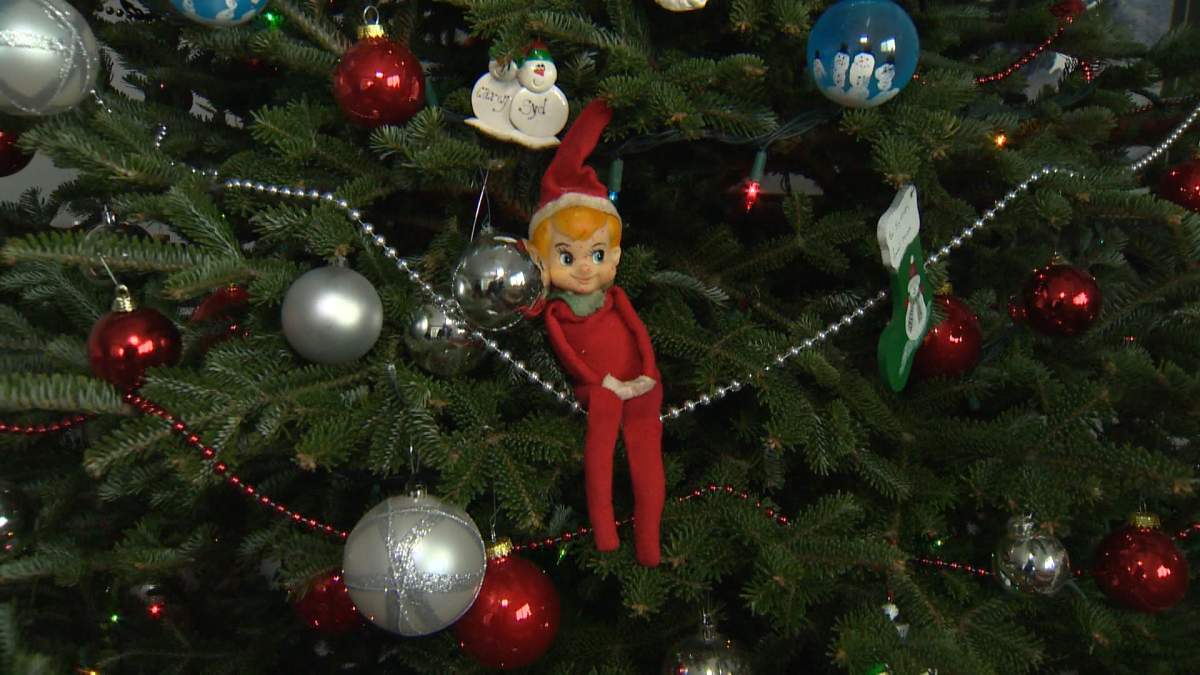Elf on the Shelf is a holiday tradition many parents partake in, but some experts say although it has good intentions, it could also be harmful to kids.

The concept of the elf is simple: parents “hide” the elf in different parts of the home, and tell children it has magical powers. The elf watches children to see if they’ve been naughty or nice, and feeds this information back to Santa Claus. If the child behaves, they get rewarded with a present on Christmas morning.
According to a recent interview with Pop Sugar, child psychologist Dr. Vanessa Lapointe said good behaviour isn’t something that can be “conned.”
“When adults get up to tricks and strategies to try and control children’s behaviour, two not-so-great things happen. The first is that the child intuitively senses in the adult a struggle to control, which must mean that the adult doesn’t really have it going on. A capable, competent, in-charge adult wouldn’t need to rely on tricks and strategies to control the child. The second is that the child feels ‘played’ by the adult.”
READ MORE: The most popular holiday gifts of 2017: the Instant Pot, Google Home and many toys
Based on a 2005 book called The Elf on the Shelf, the elf should also be named by the child and never touched. If the elf is touched, Christmas magic is said to disappear. Experts add talking to the elf is one way to get your wishlist to Santa.
Watching children

Get breaking National news
Psychologist and parenting expert Sara Dimerman, says having the doll “watch your children” may not be the best way to teach them good behaviour.
“I’d rather not give that much power to a doll, even though the power of make belief is pretty strong,” she tells Global News.
She adds on a deeper level, parents need to ask themselves if they want to buy in on the naughty vs. nice concept.
“If you’re suggesting this, then the elf may be an extension of your beliefs. On the other hand, consider whether this is something you want to uphold. Also, are you really going to follow through and not give gifts because the elf told Santa that your child is undeserving? Imagine the retaliation towards the elf and how it might be perceived by your young children at the end of the day,” she continues.
READ MORE: 12 Secret Santa gifts under $30 that your co-workers will actually like
Vancouver-based parenting coach Julie Romanowski, says some parents may see the elf as a way to relieve their own parenting duties.
“Nothing can replace this, especially not a toy,” she tells Global News. “This is the coveted part of the parenting role that is to be cherished and honoured rather than a chore. True guidance between parent and child is a beautiful way to connect and help develop the entire child.”
She adds using any kind of threat to “control” your child’s behaviour will likely be ineffective and potentially harmful down the road.
“It is no different than consequences, punishment, and taking away of privileges or time-outs. They are ineffective and detrimental at times to a child’s development. The most critical piece is that they create a further disconnect between the parent and child … and connection is the key to helping a child self-regulate as well as make good choices.”
Making it a game
But Elf on the Shelf doesn’t have to be a tool to scare children into behaving one way, experts add. It can also be a way to have fun during the holidays.
Rather than focusing on the elf watching your children and reporting their behaviour, Dimerman says you can create new traditions with the elf that reflect your own personal beliefs. Make a game out of it — hide the elf in different spots in the home and ask your children to find it.
“It becomes a fun game and something that kids will likely look back at with fondness,” she says.
Romanowski says to use it as a tool to encourage family interaction — even the naming process can be turned into a fun family night.
Teaching behaviours
And while the elf does have some power to make sure children are behaving during those weeks leading up to Christmas, there are other ways to ensure good behaviour throughout the year.
Romanowski says letting them know what is right and wrong, good and bad, and OK and not OK helps them understand their emotional boundaries, something she says children don’t learn about outside the home.
READ MORE: Some experts say Christmas music can be bad for your mental health
“Children need and want to learn what is OK and what is not OK in their world so they can adjust and regulate accordingly,” she says.
“They need this guidance from the adult who is caring for them. If we look at this strategy as helping a child learn who is struggling, then it shifts the focus on negative interactions into more positive ones. The entire approach is connective and healthy.”











Comments
Want to discuss? Please read our Commenting Policy first.